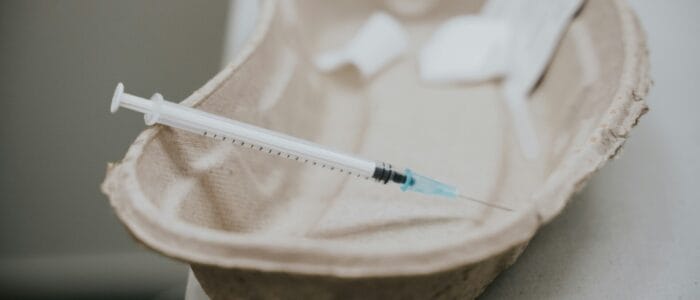Maternal Vaccines and How Faith-Based Charities Can Help Raise Awareness

In recent years, maternal vaccines have become essential tools to protect both mothers and their newborns from serious illnesses. Pregnancy places unique demands on a woman’s immune system, making both her and her unborn child more vulnerable to infections. With new and improved maternal vaccines now available, pregnant women can safeguard their health and give their babies a stronger start in life. Faith-based charities can play a powerful role in supporting the health of their communities – raising awareness of these vaccines and helping to dispel myths or fears that may prevent women from seeking out these important protections.
Are there people within your community who may benefit from more information on what’s available?
Vaccines protect both mothers and their babies by creating antibodies that fight off infections. When a pregnant woman receives a vaccine, her body produces antibodies that can cross the placenta, giving her baby some immunity before they are born. This protection lasts for the first few months of the baby’s life, giving them a safer start until they’re old enough to receive their own vaccinations.
Maternal vaccinations have been shown to reduce the need for hospitalisation for both mothers and newborns, and to lower the risk of severe complications.
What vaccines are available?
There are currently 4 primary vaccines recommended by the UK Health Security Agency for pregnant women to protect them and their babies against serious illnesses:
1. RSV (Respiratory Syncytial Virus) Vaccine
RSV is a common respiratory virus that can cause severe lung infections in infants, such as bronchiolitis and pneumonia. Each year, RSV leads to thousands of hospitalisations and even infant deaths. The RSV vaccine, now available in the UK for pregnant women from 28 weeks of pregnancy, helps protect newborns by significantly reducing the risk of severe RSV infection for the first six months of life, even for babies born prematurely.
2. Whooping Cough Vaccine
Whooping cough, or pertussis, is highly contagious and particularly dangerous for young infants who have not yet started their own vaccination series. By receiving the whooping cough vaccine between 20 and 32 weeks of pregnancy, mothers can pass on immunity that protects their newborns in their earliest weeks, when they are most vulnerable.
3. Flu Vaccine
During the colder months, flu spreads more easily, and it poses a higher risk for pregnant women. Flu during pregnancy can lead to complications like pneumonia, preterm birth, low birth weight, and even stillbirth. Getting the flu vaccine can reduce these risks and provide babies with some immunity for their first months of life.
4. COVID-19 Vaccine
COVID-19 remains a serious health risk, and pregnant women who contract it, especially in the later stages, face an increased likelihood of severe illness and complications. The COVID-19 vaccine protects pregnant women from these risks and provides antibodies that can help protect their babies against COVID-19 during the critical first few months.
Where can I find out more if I’m unsure?
For more information, health services, such as maternity clinics, pharmacies and GP practices, are great places to ask questions. The NHS website and local authority websites also provide detailed guidance on maternal vaccinations and any possible side effects or precautions.
What role can faith-based organisations play?
Faith-based organisations can help to support and educate communities on the importance of maternal vaccines by connecting women to these resources. These organisations provide a supportive environment for open discussions, often serving as trusted voices within their communities, helping to spread information and address any concerns people might have.
Faith-based organisations, with their unique position of trust and influence, can bridge the gap between medical journeys and personal faith, helping mothers feel empowered and supported...
A bit more about our own work...
At FaithAction, we have spent the past few years engaging with faith communities and faith leaders to develop a toolkit and national campaign, Faith for a Safe Start, to tackle maternal inequalities and highlight the role that faith can play in addressing these issues
Our toolkit will explain what these inequalities are, how to navigate the health system and how faith communities and leaders can support their communities through this. The campaign will seek to unite and engage local maternal and neonatal services with faith communities to enhance work around tackling maternal inequalities.
Faith-based organisations, with their unique position of trust and influence, can bridge the gap between medical journeys and personal faith, helping mothers feel empowered and supported in making the best health decisions for their families. Through workshops, resources, partnerships, and compassionate guidance, faith-based organisations can play a vital role in promoting maternal health and giving the next generation a safer, healthier start.
About Peter Kanyike
Graduate Engagement and Project Officer
Peter has a Masters degree in Global Healthcare Management (Leadership) from UCL, gaining a range of experience across the NHS, pharmaceutical industry, university/student union policy and engagement, and global health policy. He also has a Bachelors in Biochemistry from King’s College London.
He currently supports FaithAction’s programme of work with the Department of Health and Social Care, the UK Health Security Agency (UKHSA) and NHS England. He has a working desire to be involved in health systems improvement and tackling health inequalities, and you can often find him at health conferences across the country.
Outside of FaithAction, Peter likes to attend various mosques wherever he finds himself in the city, and plays football weekly alongside going to the gym, using his knowledge in exercise science. He also has a 75% chance of winning a competitive Pokémon battle at any given time…


